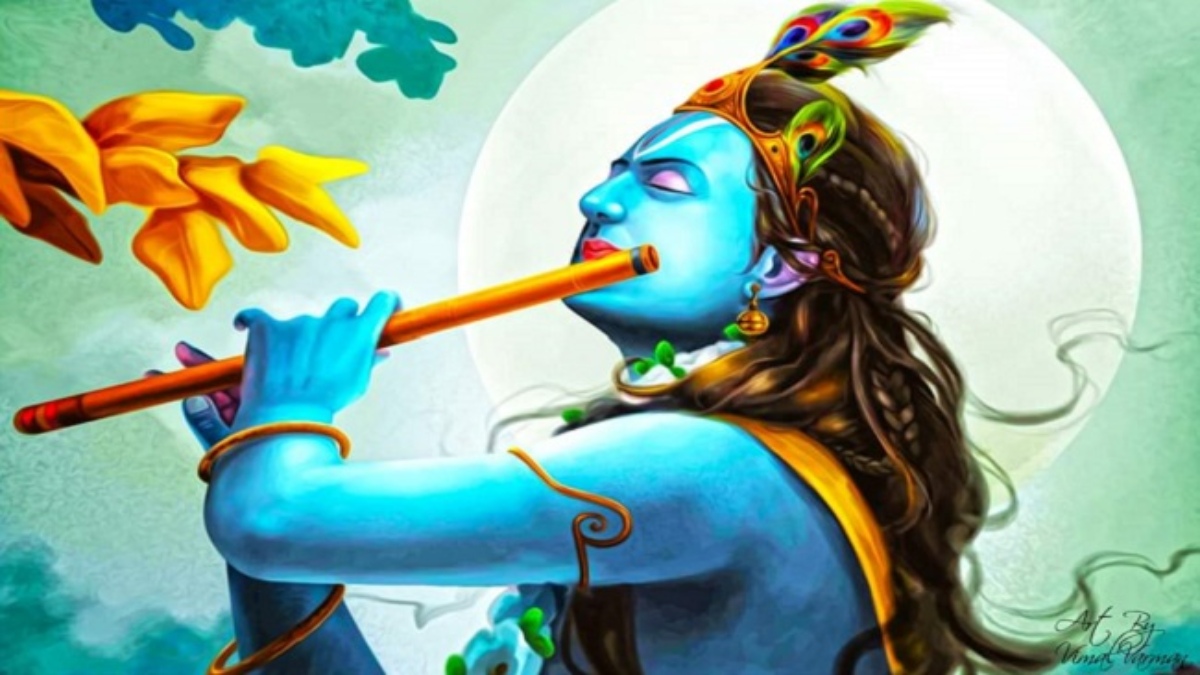


Krishna lists four types of miscreants who will never surrender:
The grossly foolish
The lowest of mankind
Those whose knowledge is stole n by illusion
And those who partake of the atheistic nature of demons.
So then the question naturally arises: “Who will surrender to Krishna?” This is answered by Krishna in the verse (Bhagavad-gita 7.15):
O best among the Bharatas (Arjuna), four kinds of pious men render devotional service unto Me—the distressed, the desirer of wealth, the inquisitive, and he who is searching for knowledge of the Absolute.
The common factor shared by all the men who surrender to Krishna is they are pious. Unlike the miscreants, they follow the regulative principles of the scriptures, the moral and social laws, and are, more or less, devoted to the Supreme Lord.
Among these pious men there are four classes who surrender to Krishna:
The distressed.
Those who are in need of money.
Those who are inquisitive,
And those who are searching after knowledge of the Absolute Truth.
These persons come to the Krishna for devotional service under different conditions. These are not pure devotees because they have some aspiration to fulfil in exchange for devotional service.
Pure devotional service is without aspiration and without desire for material profit. The Bhakti-rasamrta-sindhu defines pure devotion thus: “One should render transcendental loving service to the Supreme Lord Krishna favorably and without desire for material profit or gain through fruitive activities or philosophical speculation. That is called pure devotional service.”
When these four kinds of persons come to the Supreme Lord for devotional service and are completely purified by the association of a pure devotee, they also become pure devotees.
As far as the miscreants are concerned, for them, devotional service is very difficult because their lives are selfish, irregular and without spiritual goals. But even some of them, by chance, when they come in contact with a pure devotee, also become pure devotees.
Those who are always busy with fruitive activities come to the Lord in material distress and at that time associate with pure devotees and become, in their distress, devotees of the Lord.
Those who are simply frustrated also come sometimes to associate with the pure devotees and become inquisitive to know about God.
Similarly, when the dry philosophers are frustrated in every field of knowledge, they sometimes want to learn of God, and they come to the Supreme Lord to render devotional service and thus transcend knowledge of the impersonal Brahman and the localised Paramatma and come to the personal conception of Godhead by the grace of the Supreme Lord or His pure devotee.
On the whole, when the distressed, the inquisitive, the seekers of knowledge, and those who are in need of money are free from all material desires, and when they fully understand that material remuneration has nothing to do with spiritual improvement, they become pure devotees.
As long as such a purified stage is not attained, devotees in transcendental service to the Lord are tainted with fruitive activities, and they search after mundane knowledge, etc. So one has to transcend all this before one can come to the stage of pure devotional service.
Of these, the wise one who is in full knowledge in union with Me through pure devotional service is the best. For I am very dear to him, and he is dear to Me.
Free from all contaminations of material desires, the distressed, the inquisitive, the penniless, and the seeker after supreme knowledge can all become pure devotees. But out of them, he who is in knowledge of the absolute truth and free from all material desires becomes a really pure devotee of the Lord.
Of the four orders, the devotee who is in full knowledge and is at the same time engaged in devotional service is, the Lord says, the best.
By searching after knowledge one realises that his self is different from his material body, and when further advanced he comes to the knowledge of impersonal Brahman and Paramatma. When one is fully purified, he realises that his constitutional position is to be the eternal servant of God.
By association with pure devotees, the inquisitive, the distressed, the seeker after material amelioration and the man in knowledge all become themselves pure. But in the preparatory stage, the man who is in full knowledge of the Supreme Lord and is at the same time executing devotional service is very dear to the Lord. He who is situated in pure knowledge of the transcendence of the Supreme Personality of God is so protected in devotional service that material contaminations cannot touch him.
Gaurangasundar Das is Iskcon, Inc Communication Director and SM IT head.